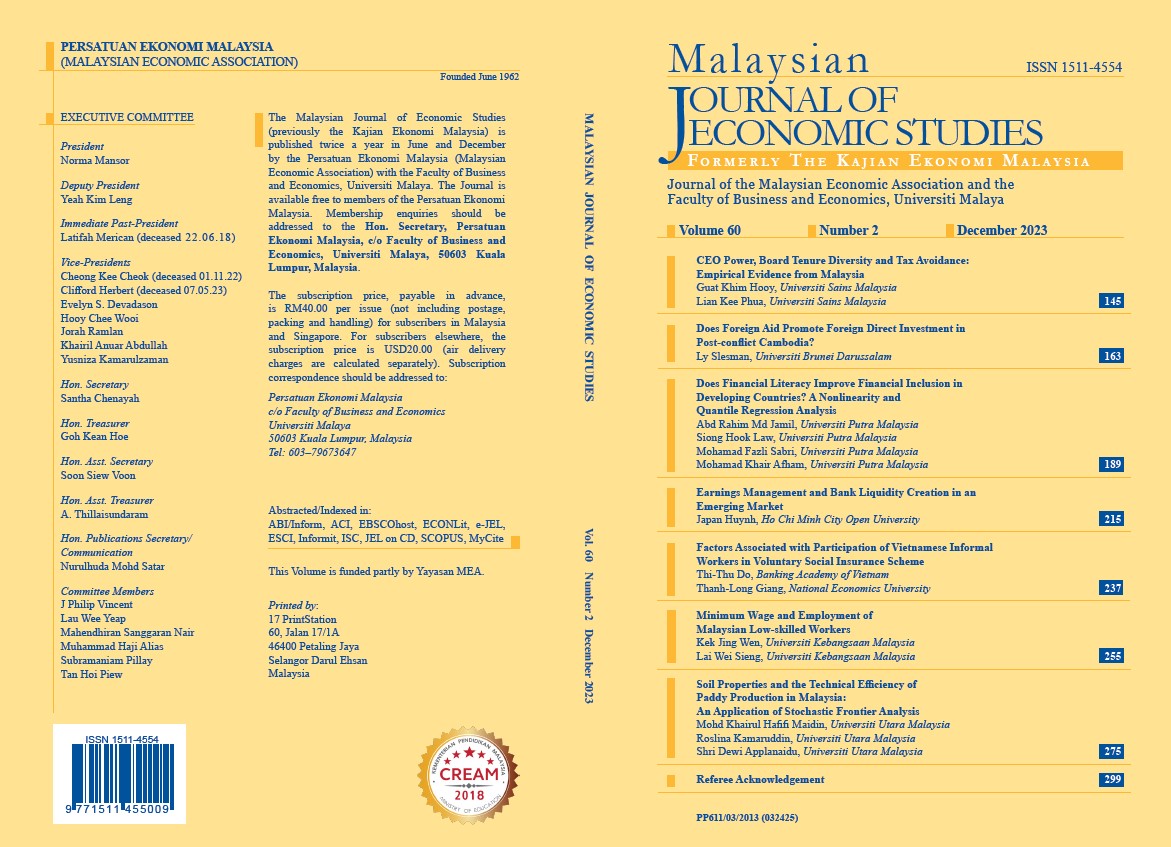Minimum Wage and Employment of Malaysian Low-skilled Workers
DOI:
https://doi.org/10.22452/MJES.vol60no2.6Keywords:
Minimum wage, low-skilled workers, employment, ARDL, MalaysiaAbstract
The current study is inspired by inconclusive empirical findings on the impacts of minimum wage on employment. The majority of past studies have concluded that an increase in the minimum wage negatively impacts employment, despite certain scholars discovering either an insignificant or a positive impact. Hence, this study aims to investigate the impact of the Malaysian minimum wage on the employment opportunities of low-skilled workers. The data are collected annually from 1995 to 2020. An autoregressive distributed lag (ARDL) model is employed to examine the impact of the Malaysian minimum wage on the employment of low-skilled workers. The bounds test method and error correction model (ECM) are subsequently utilised to determine both short- and long-term effects. As a result, the employment of low-skilled labour is found to be positively impacted by the minimum wage, with this impact being statistically significant in both the short and long terms. However, when the interaction variables are included, the effect on the employment of low-skilled workers is negative and insignificant. Furthermore, neither increasing labour productivity nor technological advancement significantly altered the impact of the minimum wage on employment.







